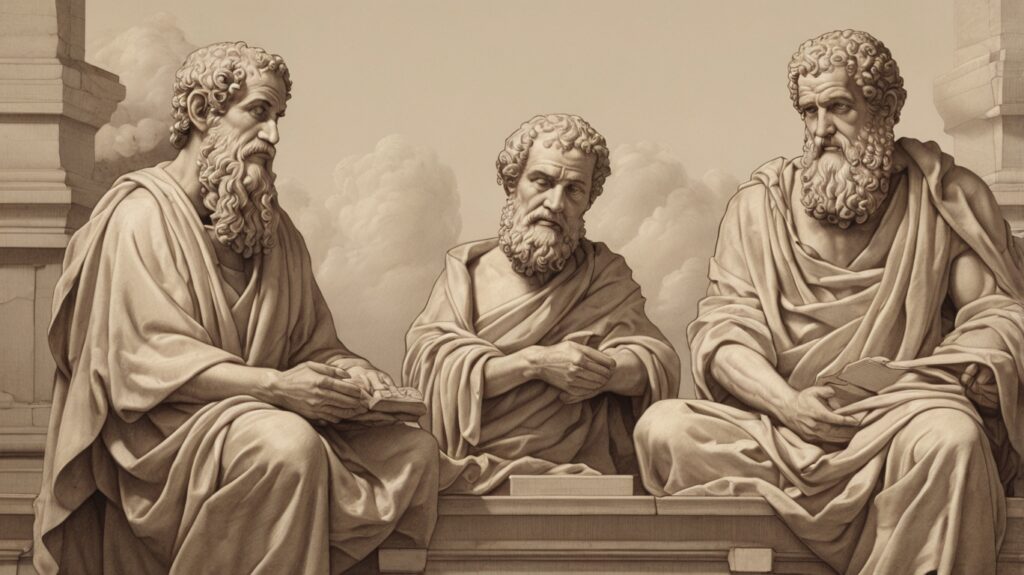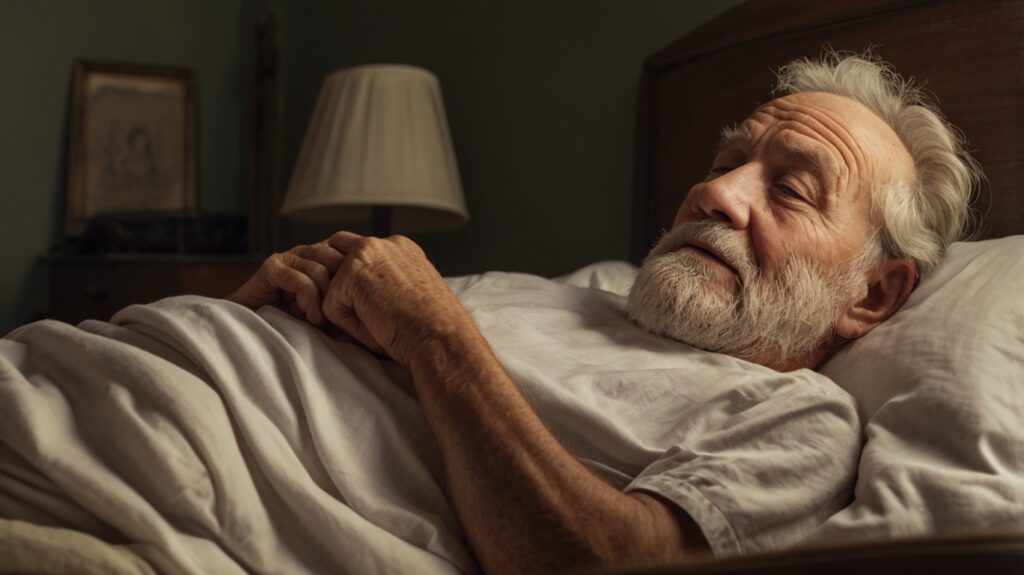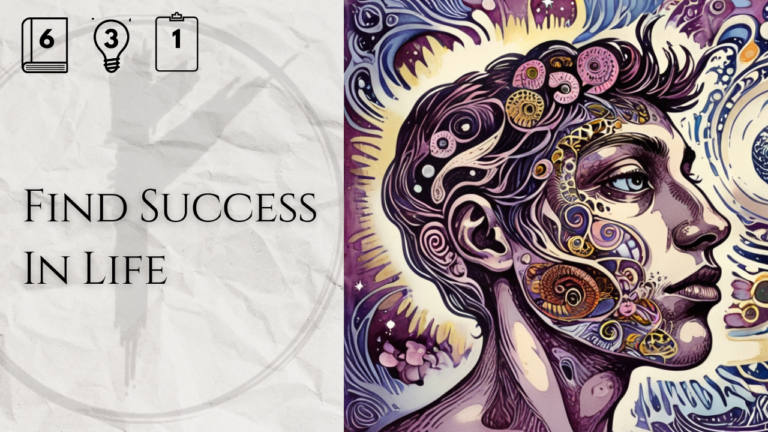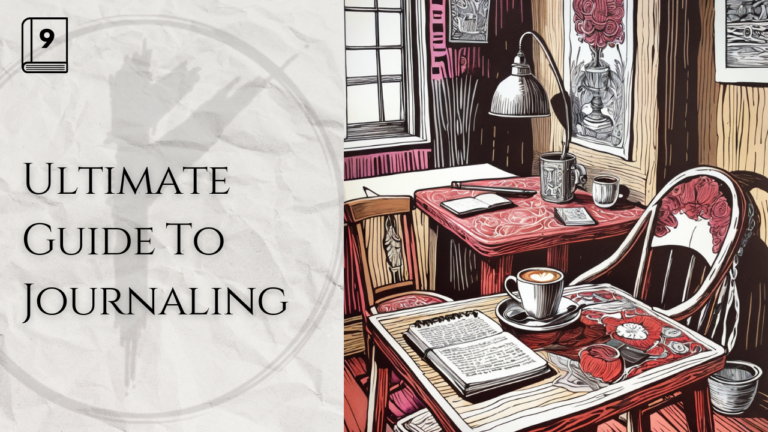Why is it so hard to stop caring what other people think of us? And how is it possible to overcome this?
This is a question we probably all asked ourselves at some point.
Here’s what I found.
Why Do We Care What Others Think?
Okay, first of all, and to put things into perspective, it is important to understand why we care in the first place about what other people think of us.
Because at first sight, it doesn’t make much sense, does it?
People who are not even important to us, become the focus of our attention when we fear their negative judgment.
But as with many things, keep in mind that we, as a human species, lived in tribes for hundreds of thousands, if not millions, of years. Therefore, we were always dependent on other group members.
Since we only had a chance to survive in groups when facing threats and trying to survive, we simply evolved to be who we are today: social animals.

“Dunbar’s Number” states that we’re psychologically inclined to work best in groups of up to 150 people. That’s how we’re wired, and it hints at how we lived for presumably all of human history.
Aziz Gazipura mentions this in “The Solution To Social Anxiety”:
Aziz Gazipura in “The Solution To Social Anxiety““Being rejected, cast out, and otherwise ousted from the pack is a deeply primal fear in all humans. We are social animals. The loss of connection with the group is a primary threat. As such, your mind is going to be very aware of anything that might bring this about and will label it as dangerous.“
The Importance of Social Connection
So, it was always necessary to care about what others think, in order to be an accepted part of the group.
If you wanted to survive, you better made sure the others didn’t dislike you.
There’s a much lower chance of survival when your tribe, for whatever reason, doesn’t want you to be around and you’re by yourself.
So the point is, everybody naturally cares to some degree, because it’s just ingrained in us. As tribal animals, we have to feel this way. It’s a given; it’s the natural way. It’s normal.
So nothing is wrong with you for worrying about what others think, and everyone feels like this to some degree.
But…
…it’s all about balance!

The Extremes: Psychopathy vs. Over-Caring
Michelle Elman states correctly in “The Joy of Being Selfish”:
Michelle Elman in “The Joy of Being Selfish““People who don’t care what people think at all and have never cared what people think are classified as psychopaths. They demonstrate no empathy and don’t consider other people’s thoughts at all. However, there is a distinction between those who care what others think to a healthy level and those who care so much it dictates their entire life.
I experienced myself that it is like this with many things in life.
More often than not, it’s about balance, and either extreme is bad.
This is also what we can learn in philosophies like the “Tao Te Ching“, or concepts like “Yin and Yang“; it’s all about balance. If you lean too much to one side, you will lose your stability and maybe fall off.
Everything will get out of whack.
You probably came here because you found yourself caring too much about what others think, at least to some degree or some of the time.
So what is the solution to this? How do we balance things right to improve our lives?
The Solution: Caring More About What YOU Think Instead
The solution is to care about what others think, but care MORE about what you think in the end!
No extreme leaning to either side. Like most things, it’s not a black-and-white thing.
It’s about finding the sweet spot rather than stopping to care altogether (I admit, the title of this post contradicts this, sorry for that, lol), which is not possible in a healthy way anyway.
This imbalance in us was already written about almost 2000 years ago by Marcus Aurelius in his “Meditations”:
Marcus Aurelius in “Meditations““I’m constantly amazed by how easily we love ourselves above all others, yet we put more stock in the opinions of others than in our own estimation of self. . . . How much credence we give to the opinions our peers have of us and how little to our very own!”
The Stoic Perspective
But not only one of the great stoics, Marcus Aurelius, writes about this. It is a common topic in the philosophy of stoicism in general.
In his outstanding book “The Practicing Stoic,” Ward Farnsworth writes:
Ward Farnsworth in “The Practicing Stoic“Stoicism tries instead to substitute a greater respect for one’s own opinions and practice at valuing things for what they are rather than for what anyone else thinks about them.
So, what others think will always be an external thing, based on their experiences, feelings, moods, or other outside circumstances.
It cannot be more important in our lives than our own opinions. Because then, basically sheer luck as to who we come across and what they went through or how they are feeling today, dictates how we feel about ourselves and the trajectory of our lives.

We certainly should take criticism seriously, especially if it comes from people we value and if we hear the same criticism repeatedly. But other than that, we need to course correct what truly is important in OUR opinion.
The 18-40-65 Rule
Other people come to the conclusion, that we shouldn’t care that much what other people think of us, because they simply don’t think of us as often as we think they are. Daren Hardy calls it the “18-40-65 rule”:
Darren Hardy in “The Entrepreneur Roller Coaster“When we’re eighteen, we worry endlessly about what people think of us. Does he or she think I’m cute? Do they like me? Is so-and-so mad at me? Am I being gossiped about? Then, by age forty, we stop worrying about gossip and opinions. We finally stop caring what people think about us.
But it isn’t until age sixty-five that we realize the truth: All this time, nobody has really been thinking about us at all.
…
Don’t let people who don’t matter matter.
Thibaut Meurisse puts it this way in “Master Your Emotions”:
Thibaut Meurisse in “Master Your Emotions“You’re not responsible for people’s thoughts. In fact, what people think of you is none of your business. Your job is to express your personality the best way you can while having the purest intent possible. In short, your responsibility is to do your best to be your true self. Then, people may or may not like you, and either way is fine. Remember, the most influential people, such as presidents, statesmen and women, are often hated by millions.
The Impossibility of Universal Approval
What Thibaut Meurisse says here is a very important point.
It is impossible to be liked by everyone.
People are so different that what one person might like about you is the same thing another would hate.
So, evaluate what’s better: trying to please people who don’t even fit into your life, or showing your true self so you end up with the people you actually vibe with.

Implementing This in Our Lives
The big question, though, is:
How do we get there?
Because things are more easily said than done, as we know.
Everything mentioned so far makes sense on a theoretical level, but how do we implement it in our lives?
Since our moods fluctuate, sometimes we feel good about ourselves, and sometimes we don’t.
And when we feel bad, we tend to especially look for the approval of others.
So, how can we solve this?
Setting Your Values and Goals
An important step towards prioritizing your own opinion over the opinions of others is to make clear what your values, truths, rules, and goals are.
What actually matters to you?
Really think about those things and write them down somewhere on paper or on your laptop.
If you do that, you will always be able to ask yourself if you’re walking towards the actually important things or not.
Based on everything you determined to be essential to you in your life, would it matter what someone else thinks of it, if you’re aligning your words and actions with those values?
Does your action bring you closer to what you see as “good” and what you have determined for yourself, or not?
If yes, we will intrinsically think positively about ourselves.
If not, and if those things are unclear, we need validation from others.
We trust that if we don’t know what is good and virtuous, then acting according to what other people think is good, will keep us on the safe side.
But if we just for maybe 15 minutes, wrote all of those things down and asked, “What do I think is good, important, and virtuous?” and then we would act according to this, we would gain tremendous self-respect and trust in ourselves over time.
Judging Your Own Life
The thing is this…
We will look back on our lives at some point. They say we come alone, and we’ll go alone. When that happens, will you care about what other people around you thought, or will you look back and say,
“I lived my life according to what was important to me and what I thought was worthwhile“.
Without being clear about what matters to us, we’re basically like leaves in the wind, swept away by any breeze—by the opinions of others, their moods, our moods, and so on.
The Perspective of Death
Another thought that comes to mind when I think about this topic, and one of the paths to the realization of how little the opinions of others matter, is death.
When you lay on your deathbed and reminisce about your life, you will realize how little all those other opinions actually mattered all along. Because those people won’t be there now, or on your path to whatever comes after this life.

You are the only one, who has been there for every single second of your life.
And by the end of it, things will be put in perspective automatically.
This is also a principle that the stoics were talking about: contemplate death to realize which things are important. We don’t have all the time in the world. We will all die, and we should be at peace with ourselves. WE will judge the way we lived our lives in the end.
WE will be the ones who either feel proud or regretful, not others.
The Ephemeral Nature of Opinions
Many people whose opinions you care about today will have forgotten about you tomorrow, or maybe in a month or a few years from now. Most likely, they won’t be at your funeral.
Conan O’Brien once said,
Conan O’Brien“Eventually, all our graves will go unattended.”
So, think about this. Dwell on it. Close your eyes and imagine that for just 20 seconds or so. You will realize how little most of those worries you have today actually matter. Including those, that revolve around what other people might think of you.
Final Thoughts
What are your experiences and thoughts? Let me know in the comments. And if you found this post interesting, leave a like and subscribe to the channel for more content like this.
Let’s end this with the following quote:
“Don’t Worry If People Don’t Like You. Most People Are Struggling To Like Themselves.”
Sources
Books
Aziz Gazipura – “The Solution To Social Anxiety”
Michelle Elman – “The Joy of Being Selfish”
Marcus Aurelius – “Meditations”
Ward Farnsworth – “The Practicing Stoic”
Darren Hardy – “The Entrepreneur Roller Coaster”
Thibaut Meurisse – “Master Your Emotions”







